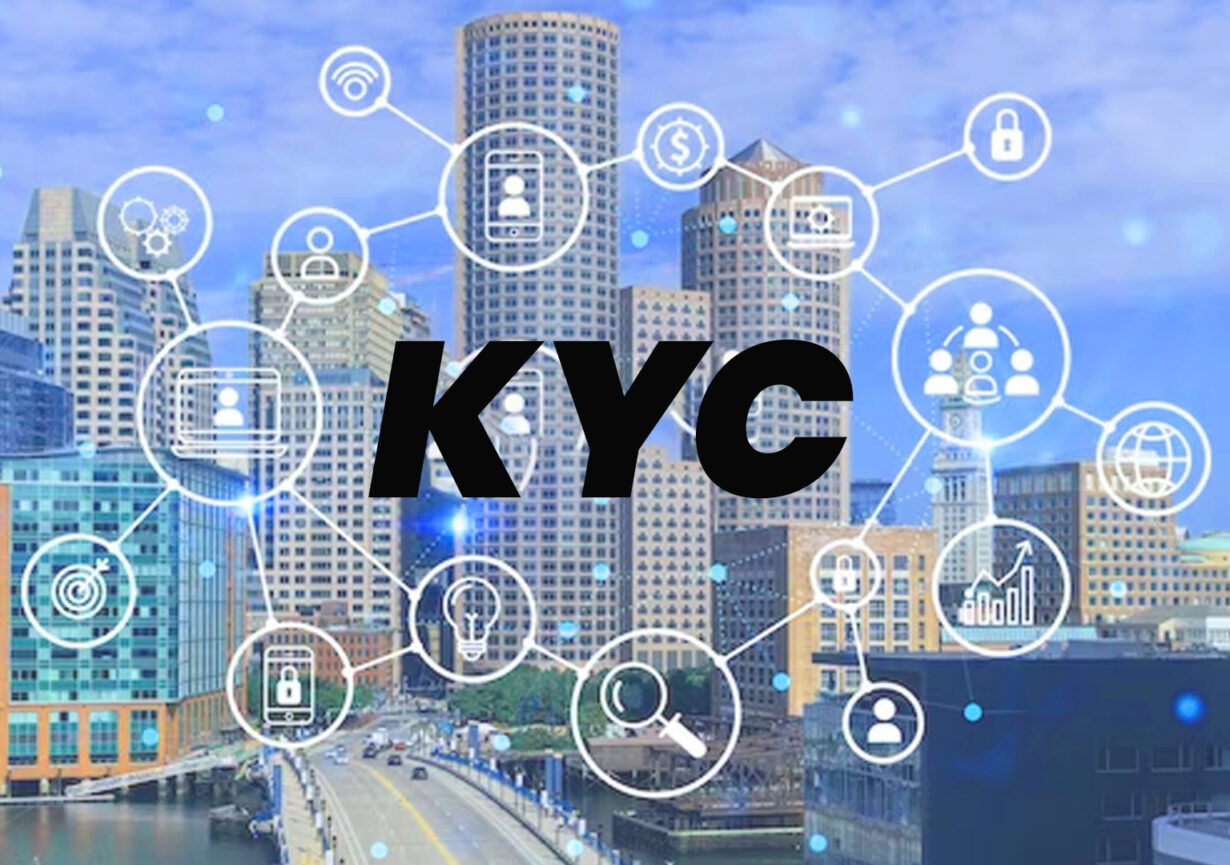- Blockchain technology provides enhanced data security for KYC procedures.
- Transparency and trust in the blockchain helps to boost trust in the KYC procedure.
- Blockchain technology has the potential to revolutionize KYC procedures by providing an effective platform for storing client information.
Technology has ingrained itself into our daily lives in the twenty-first century, with new developments and scientific discoveries occurring at an unparalleled rate. Blockchain, a decentralized digital ledger has the potential to revolutionize several industries, including finance, supply chain management, and even healthcare, is one such technology that has been making waves in recent years.
Streamlining Know Your Customer (KYC) procedures, which are necessary for financial institutions and other businesses to confirm the identity of their clients and ensure compliance with anti-money laundering (AML) and counter-terrorism financing (CTF) regulations, is one area where blockchain technology has shown great promise.
The new KYC utility model with blockchain support involves a network of banks sharing a distributed ledger containing corporate client profiles. It replaces the current centralized KYC utility paradigm, improves data transparency, makes KYC and other checks easier to execute automatically, boosts productivity, and guarantees a better client experience.
How Can Blockchain Streamline KYC?
- Enhanced Data Security: Immutability and decentralized storage, two of blockchain’s main characteristics, provide better data security for KYC procedures. KYC data is encrypted and dispersed over several network nodes when it is kept on a blockchain. This reduces the risk of a single point of failure or unauthorized access. Additionally, the immutability of blockchain assures that data cannot be changed retrospectively after it has been recorded without agreement from network users.
- Increased Efficiency and Cost Savings: Routine data collection and verification are a common part of traditional KYC processes, which results in duplication of effort and higher expenses. Verified client data is recorded in a shared ledger that is made possible by blockchain technology. The KYC data that has already been collected can be accessible via the blockchain when a customer interacts with a new institution, eliminating the need for additional verifications. This streamlined procedure improves client onboarding’s overall effectiveness while saving time and money.
- Self-sovereign Identity: Self-sovereign identity is a blockchain-enabled idea that gives people control over their identification data. Individuals can save their KYC data on a blockchain, encrypted and available only through their private keys, as opposed to depending on centralized databases. People can carefully disclose essential KYC data while communicating with various institutions, protecting their privacy and lowering the risk of data breaches. Individuals are in charge of their data when they have a self-sovereign identity, which eliminates the need for multiple KYC procedures across several organizations.
- Trust and Transparency: The transparency of the blockchain helps to boost trust in the KYC procedure. The blockchain keeps track of every transaction and modification to client data, leaving an immutable and auditable trail. By gaining access to the blockchain and confirming that the necessary KYC checks have been carried out, regulators and auditors may confirm compliance. As any fraudulent activity or unauthorized changes to the data can be quickly detected and tracked, this transparency also encourages accountability among the affected parties.
- Collaboration Between Organizations: Blockchain enables communication and data sharing across several organizations engaged in KYC procedures. They may rely on the common, decentralized blockchain network rather than undertaking their own KYC verification processes for every organization. By doing so, redundant checks are not required, and institutions can access blockchain-based client data that has been confirmed. As KYC information can be transferred easily throughout the network, it also makes the customer onboarding process simpler when working with numerous organizations.
- Regulatory Compliance: By using smart contracts to automate compliance inspections, blockchain can help organizations comply with legal regulations. Smart contracts are self-executing contracts with predetermined terms and circumstances. Smart contracts can ensure compliance in the context of KYC by automatically carrying out appropriate checks, like confirming customer names against sanctioned databases or guaranteeing adherence to particular legislation. This automation lowers the possibility of human error and makes sure that KYC procedures adhere to legal requirements.
Conclusion
By offering a safe, open, and effective platform for storing and exchanging client information, blockchain technology has the potential to revolutionize KYC procedures. We will likely see an increase in the number of financial institutions and other businesses exploring the potential of blockchain for streamlining their KYC processes, ultimately benefiting both businesses and their customers, as the technology continues to develop and gain traction in a variety of industries.


Leave a Reply